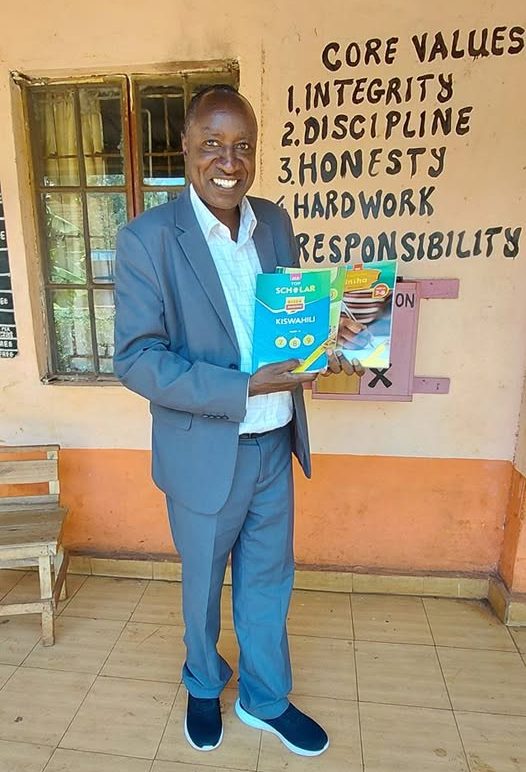Leveraging WhatsApp groups in a school setting has become a game-changer in mobilizing people and resources, enhancing communication, and fostering accountability. These digital platforms provide an efficient and cost-effective means to bridge gaps between administration, teachers, students, and parents, creating a more connected and proactive learning environment. Drawing from years of experience in both private and public institutions, I have seen firsthand how WhatsApp groups can be a powerful tool in school management and development.
WhatsApp groups have transformed the way schools mobilize people and resources. In any school setting, information flow is key to effective participation. Through school-wide WhatsApp groups, the administration can easily reach out to parents, teachers, and students, ensuring that critical messages are disseminated in real time. This instant communication fosters engagement and involvement, particularly among parents who may not always be physically present but are keen on their children’s progress. The same applies to teachers, who can quickly be mobilized for meetings, emergency decision-making, or collaborative planning. The efficiency of these groups in relaying information ensures that no one is left behind, and everyone remains updated on school matters.
ALSO READ:
Bobasi Varsity and College students get Kshs 30M in NG-CDF bursary
Fundraising and donations are integral to many school projects, especially in institutions that rely on community support. WhatsApp groups serve as effective platforms for rallying resources, whether for infrastructure development, student bursaries, or extracurricular activities. Alumni associations, for instance, often use WhatsApp to organize contributions towards school improvements. These groups create a sense of shared responsibility, where former students, well-wishers, and stakeholders can be called upon to support school initiatives with ease. This instant and direct form of communication eliminates bureaucratic delays and ensures that financial and material contributions reach the intended beneficiaries promptly.
Communication is the backbone of a well-functioning school, and WhatsApp groups have become indispensable in this regard. They provide a structured way of ensuring that important announcements reach all stakeholders efficiently. Teachers use subject-specific groups to engage students beyond classroom hours, providing extra learning materials, clarifications, and guidance. This fosters a more interactive and student-centered approach to learning, where students feel free to consult and share insights with their teachers and peers. Additionally, school WhatsApp groups have proven vital in cases of emergencies, such as security threats or medical crises, allowing for rapid coordination and response to safeguard students and staff.
WhatsApp groups also play a pivotal role in enhancing accountability within the school community. The transparency they bring ensures that everyone involved in school operations remains answerable for their responsibilities. Teachers and students can track academic progress through shared assignments and discussions, ensuring that learning objectives are met. In cases where group members are tasked with specific responsibilities, WhatsApp serves as a platform to follow up on deadlines, update on progress, and provide real-time feedback. This level of accountability is particularly effective in student leadership groups, where duties must be executed efficiently and with integrity.
ALSO READ:
Education CS opens new facilities at Nyabururu Girls in Kisii
In school administration, decision-making is often a complex process that requires consultations among multiple stakeholders. WhatsApp groups provide a structured forum where school leaders can communicate policies, clarify issues, and gather feedback from teachers and parents. This two-way communication ensures that concerns are addressed promptly, fostering a sense of inclusion and trust. By creating a platform where everyone’s voice is heard, schools can build stronger relationships with their stakeholders and make informed decisions that reflect the needs of the entire community.
Managing WhatsApp groups effectively is essential to maximize their benefits. Clear guidelines should be established to ensure that discussions remain relevant and constructive. Each group should have a defined purpose, and all members should adhere to set protocols. Appointing moderators, such as teachers or student leaders, helps in maintaining order and ensuring that messages align with the group’s objectives. Overloading members with excessive messages should be avoided, as it may lead to disengagement or important messages being ignored. Additionally, privacy must be respected at all times, with confidential information being handled appropriately to maintain professionalism and trust within the group.
Despite the many advantages of WhatsApp groups, challenges such as misinformation, misuse, and privacy concerns can arise. It is crucial to ensure that information shared within these groups is verified and relevant to avoid the spread of rumors or confusion. Schools must also train members on appropriate digital etiquette to maintain respect and decorum in discussions. Striking a balance between accessibility and responsibility is key to ensuring that WhatsApp remains a productive tool rather than a source of distraction or conflict.
WhatsApp groups have undeniably transformed school operations by fostering effective communication, mobilizing resources, and enhancing accountability. As an educator and Dean of Students, I have witnessed their impact in streamlining school activities, boosting parental involvement, and ensuring smooth coordination among staff. Schools that embrace this digital tool responsibly will continue to reap its full benefits, creating a more informed, engaged, and accountable educational environment. By harnessing the potential of WhatsApp, we can build stronger school communities and provide students with the best possible support system for their academic and personal growth.
By Kamomonti wa Kiambati
*Kamomonti teaches English and Literature in Gatundu North Sub County.*
You can also follow our social media pages on Twitter: Education News KE and Facebook: Education News Newspaper for timely updates.
>>> Click here to stay up-to-date with trending regional stories
>>> Click here to read more informed opinions on the country’s education landscape






